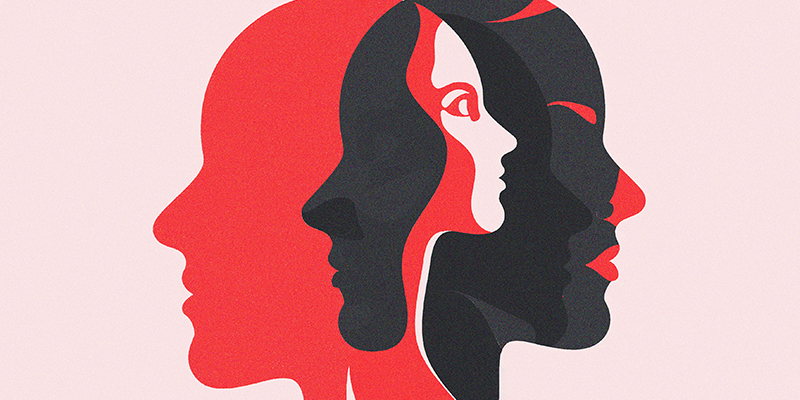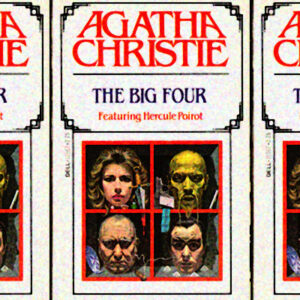Like it or not, we all have relationships with certain CEOs. A whim at the top of a social media company, drug developer, or AI enterprise can reverberate across the lives of millions of people. The richest and most colorful of these corporate leaders achieve celebrity status, stoking interest in their personal affairs—Jeff Bezos’ girlfriend’s dresses, Elon Musk’s 12 or so children—but they’re different from regular celebrities, who don’t actually have much impact on our day-to-day behavior. They’re more like Greek gods—mercurial, sometimes destructive, and murkily in control of our lives.
I got interested in these figures when I was a business journalist. As a junior reporter, covering the daily news can be pretty rote: stock prices, bond yields, and interest rates go either up or down. Some corporate leaders quietly do their jobs, control the message, and stay out of the limelight. But others bring a bracing unpredictability to a numbers-driven field. They believe their own hype; flout the law, and take wild risks. Sometimes, they crash in spectacular fashion.
Sam Bankman-Fried founded a cryptocurrency exchange, courted celebrity endorsements, and went to jail for defrauding investors. Pharma bro Martin Shkreli raised the price of an AIDS drug more than 50-fold, and, separately, was convicted of securities fraud. Theranos-founder Elizabeth Holmes insisted that her blood-testing product worked as promised, even as she pushed her staff to do the impossible. She also went to jail. Musk routinely tanks the value of Tesla and X with off-kilter pronouncements.
I wondered many things about these people: Why did they sabotage themselves after achieving so much? How did they justify their actions? And, more generally, what exactly was wrong with them?
One possible answer is that some of them might be psychopaths.
Many news articles have noted that psychopaths make great CEOs. Our modern corporate leaders benefit from symptoms like superficial charm, egocentricity, lack of remorse, deceitfulness, manipulativeness, recklessness, and a lack of empathy. Kevin Dutton, a research psychologist and author of books like The Wisdom of Psychopaths, has ranked the 10 professions most likely to attract psychopaths, with CEOs at the top.[2][3]
Most of these articles don’t name names, though Scott Galloway, a professor at the New York University Stern School of Business, did write that “Mark Zuckerberg is a sociopath, and Facebook has institutionalized sociopathy.” Maëlle Gavet, author of Trampled by Unicorns: Big Tech’s Empathy Problem and How to Fix It, has said she was inspired to write the book by people like Travis Kalanick, CEO and cofounder of Uber. She doesn’t dwell on the word “psychopathy,” but having an “empathy problem” is very much a sign of the condition. (A note on terminology: Sociopathy and psychopathy are characterized by the same traits, and both are clinically known as anti-social personality disorder.)
I was intrigued by the possibility that some corporate leaders’ brains are simply wired this way. When I began writing my novel, The Outlier, my fascination coalesced into Cate, the protagonist, and Hunter, the object of her obsession. She’s the highly successful chief scientist of a biotech company. She’s risk-taking and ruthless, and her business partner has to occasionally yank her back from crossing over into criminality. Hunter, meanwhile, is trying to commercialize an alternative energy source, but lacks any kind of normal moral framework.
As I researched the novel, I learned that about 25 percent of the prison population is thought to be psychopathic, but so is one percent of the general population. In other words, they walk amongst us. Maybe they are us. And psychopathy is a spectrum disorder, which means a person can be a little or a lot psychopathic. The Hare Psychopathy Checklist and the Diagnostic and Statistical Manual of Mental Disorders list the defining traits, and it’s hard to look at either of these sources without wanting to self-assess. Am I superficial when I try to be charming?
Likewise, once you know the traits, they help make sense of certain CEOs. Some of them seem to have charm levels off the charts, allowing them to attract big-name board members and big-ticket investors. Former WeWork CEO Adam Neumann famously spent just 12 minutes with SoftBank’s Masayoshi Son before the latter offered to invest $4.4 billion. At the same time, the lack of empathy some CEOs display can be extraordinary—as when Shkreli told a reporter that his only regret about his price hike was that he hadn’t predicted the blowback.
And yet psychopaths exist for a reason, evolutionarily speaking. Their traits have been useful to society. A person who could lead an army into battle on horseback was the one with the charm and manipulativeness to get the troops on his side, and the recklessness to risk his life. Today, we still need people with psychopathic traits. It takes a lack of empathy to perform surgery. It takes ruthlessness to make the hard decisions of leadership, when having to choose between one bad option and another. And it takes grandiosity to the point of delusion to come up with a new invention, believe it will succeed against all odds, and push it into the world. The majority of would-be tech founders wash out, but those who succeed have ferocious levels of ambition.
Maybe you just don’t get a Meta—the Facebook parent company, with four billion users and counting—without a psychopath in the mix. But in exchange for that kind of enormous impact, we’re also stuck with the downsides of psychopathy: executives who at best show grudging interest in addressing their companies’ worst impacts, even as the evidence piles up.
I wanted to investigate how to think about the non-criminal psychopaths who run our world—how to balance their positive impact with their harm. In my novel, I made the conflict between good and bad within a single person even more dramatic. Cate has saved many lives with her new drug, and Hunter believes he can commercialize nuclear fusion. Should we regard the damage they do—to a small number of people—as acceptable, given what else they’ve accomplished? I don’t have the answer for how to judge their real-world versions, but I know what I think of my characters, and where I stand on the lines they will or won’t cross.
“What was your inspiration?” is a question novelists often get asked. Mine were the worshipped and reviled icons who dominate our lives from afar, many of whom could very well be psychopaths.
***


















